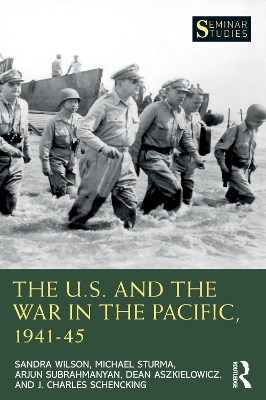Seminar Studies
1 total work
The U.S. and the War in the Pacific, 1941–45
by Sandra Wilson, Michael Sturma, Arjun Subrahmanyan, Dean Aszkielowicz, and J. Charles Schencking
The U.S. and the War in the Pacific, 1941-45 analyzes the Pacific War with a focus on America’s participation in the conflict.
Fought over a great ocean and vast battlefields using the most sophisticated weapons available, the Pacific War transformed the modern world. Not only did it introduce the atomic bomb to the world, it also reshaped relations among nations and the ways in which governments dealt with their own peoples, changed the balance of power in the Pacific in fundamental ways, and helped to spark nationalist movements throughout Asia. This book examines the strategies, technologies, intelligence capabilities, home-front mobilization, industrial production, and resources that ultimately enabled the United States and its allies to emerge victorious. Major themes include the impact of war, conceptions of race, Japanese perspectives on the conflict, and America’s relations with its allies. Using primary documents, maps, and concise writing, this book provides students with an accessible introduction to an important period in history.
Incorporating recent scholarship and conflicting interpretations, the book provides an insightful overview of the topic for students of modern American history, World War II, and the Asia Pacific.
